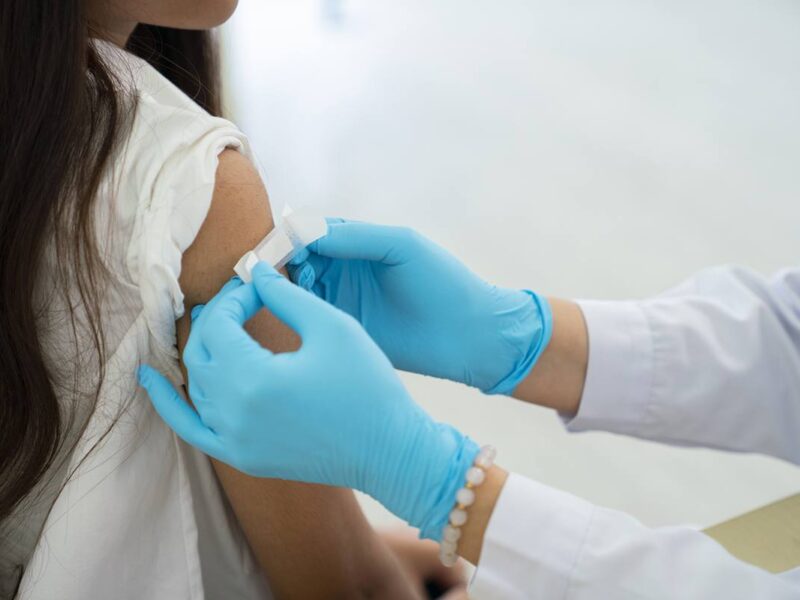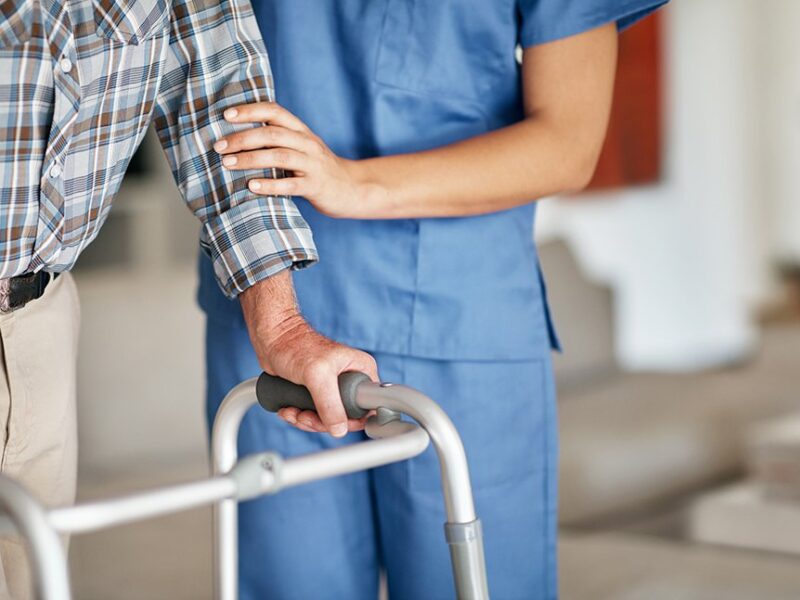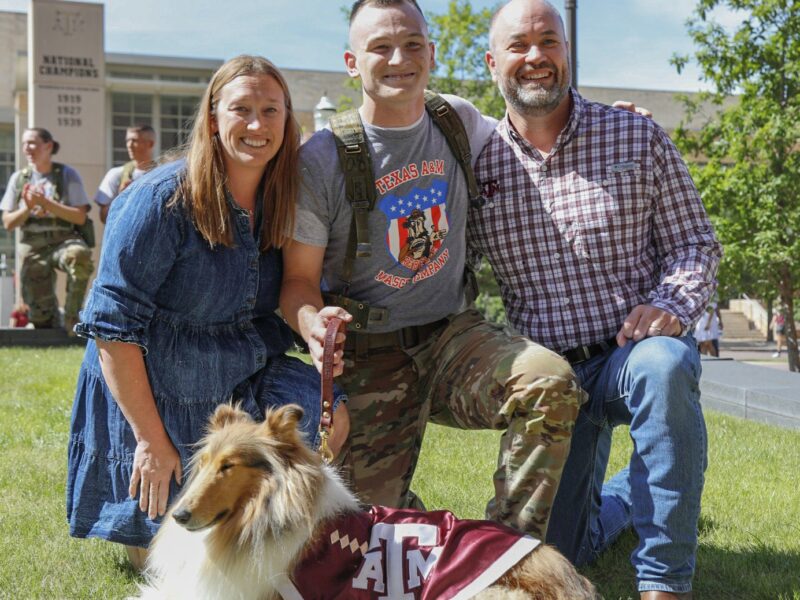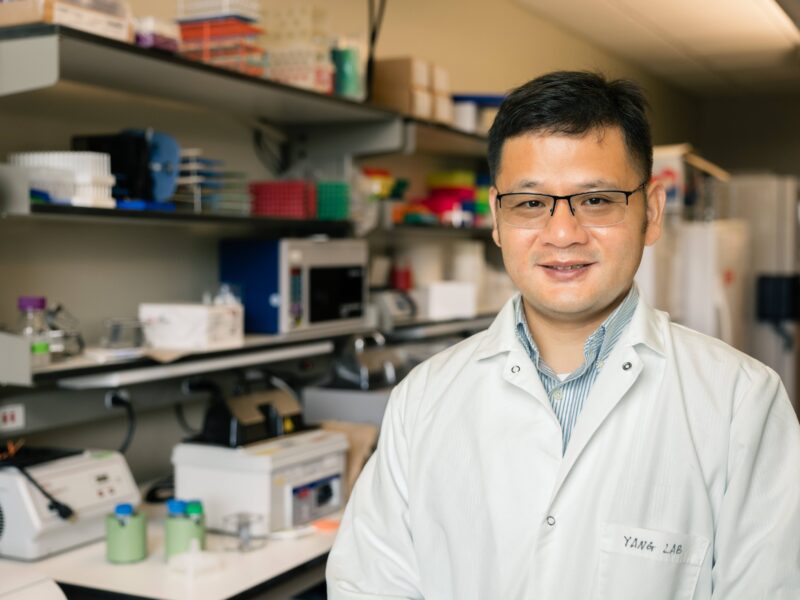Texas A&M To Participate In National Study On COVID-19 Transmission After Vaccination
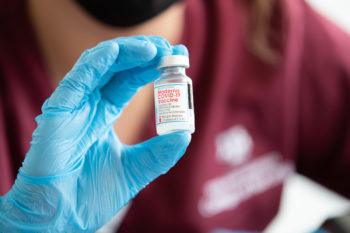
A new study involving thousands of college students across the United States aims to determine whether young adults who have received the Moderna COVID-19 vaccine can still spread the virus to others.
The COVID-19 Prevention Network (CoVPN), headquartered at Fred Hutchinson Cancer Research Center, announced the launch of the Prevent COVID U* study on March 26. Researchers from the Texas A&M University Health Science Center (Texas A&M Health) will be involved in collecting data for the study. They hope at least 2,000 students from College Station and Kingsville age 18-26 will enroll.
“This is an incredible opportunity for students of Texas A&M to be part of something big,” said principal investigator Rebecca Fischer, a professor at Texas A&M School of Public Health. “The scientific evidence we build will help answer some of the most important questions the world has at this moment about how vaccines work to prevent infections in a real-world scenario. Through this study, we can start answering these questions in the next few months.”
The multifaceted study includes investigators and an advisory board of faculty and students from across Texas A&M.
“The Texas A&M Health Prevent COVID U study team represents an unprecedented level of interprofessional collaboration between the School of Public Health, the College of Pharmacy and the Texas A&M Engineering Experiment Station. In the development of unique research tools and approach, we can achieve more together than we can individually,” said Joy Alonzo, a co-principal investigator for the study and professor at the Texas A&M Irma Lerma Rangel College of Pharmacy. “We have the opportunity to answer critical questions about COVID-19 using the unique perspectives and valuable insights of each team member.”
“The researchers in this study want to learn if the vaccine protects people from getting infected with the SARS-CoV-2 coronavirus, and if the vaccine prevents individuals from transmitting SARS-CoV-2 to others,” said George Udeani, a principal investigator for the study and professor at the College of Pharmacy. “Answers to these questions will help foster discussions toward science-based policies regarding mask use and physical distancing.”
This randomized, open-label controlled study will involve 12,000 students throughout the United States. Half of the participants will be randomly selected and vaccinated as soon as they enroll in the study, and the other half will receive the vaccine four months later.
Texas A&M is the only institution in Texas participating in this national study, which means student participants play a vital role in representing their peers across the state.
“University students were selected for the study because of high-density housing, zeal to socialize more and less fear of severe disease. These factors are associated with the high burden of SARS-CoV-2 infection on university campuses,” Udeani said.
“This study will allow many of our students to serve our campus community, but also the larger state and nation — something Aggies have done well throughout this pandemic,” said Student Body President Eric Mendoza. “The information learned has the exciting potential to help us all more effectively begin to transition to normalcy in the near future.”
Students participating will be required to swab their nose for COVID-19 daily, complete questionnaires through an e-diary app and periodically provide blood samples. Participants will be asked to follow additional procedures should they test positive for SARS-CoV-2 during the study.
Additional individuals identified by the participants as “close contacts” will be invited to join the study. Close contacts who agree to participate will be asked to answer weekly questionnaires, provide two blood samples and take daily nose swabs for two weeks.
To join this study, students must agree to not get any COVID-19 licensed or emergency use authorized vaccine until the study staff tells them to. Participants will be required to undergo a screening process, sign a consent form, and complete a questionnaire that will determine eligibility. Students could receive up to $1,000 for participating in the study.
“What we hope to learn is important scientifically, as we constantly seek to learn more about this coronavirus and how it spreads,” Fischer added. “It will ultimately help guide our understanding of how vaccines can allow us to safely interact with others in a way that feels more normal, including on our campuses.”
Students enrolled at Texas A&M University and Texas A&M University-Kingsville who are interested in participating in the study can learn more at PreventCovidU.org*, or email GetVaxxed@tamu.edu in College Station or GetVaxxedKV@tamu.edu in the Kingsville area.
* This link is no longer active and has been removed.
This article by Shelby Purdy originally appeared on Vital Record.

